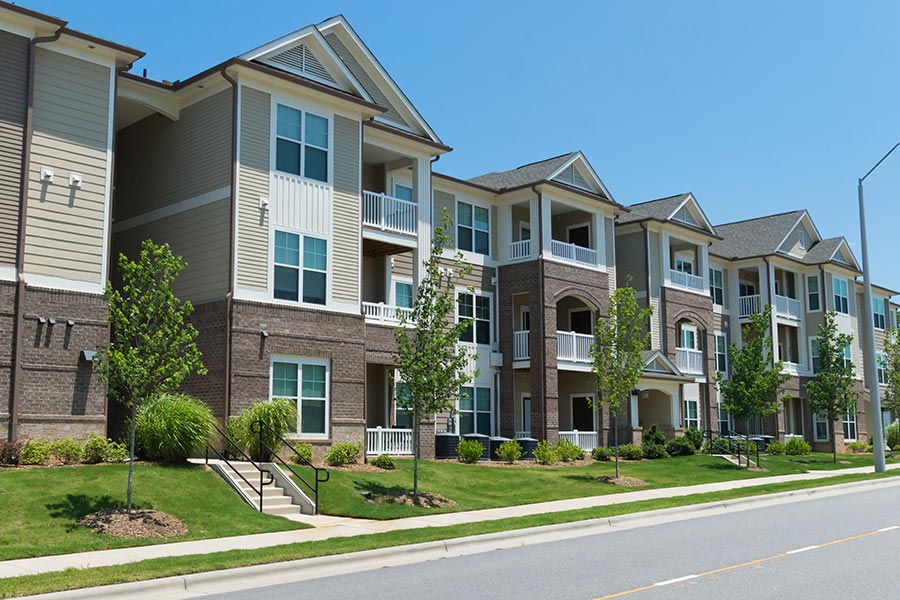Professional Guidance on Achieving Affordable Homeownership and Financial Stability
Professional Guidance on Achieving Affordable Homeownership and Financial Stability
Blog Article
Your Guide to Affordable Homeownership: Steps to Possessing Your Dream Home
Accomplishing inexpensive homeownership is a complex process that calls for tactical planning and educated selections. Begin by examining your monetary landscape to establish a budget that shows your abilities and aspirations. As you discover the real estate market, identifying patterns and opportunities becomes critical.

Examine Your Financial Circumstance
Examining your financial situation is a vital first step in the trip towards cost effective homeownership. Understanding your financial landscape gives a clear picture of exactly how much you can allot towards homeownership.
Following, examine your regular monthly expenses, classifying them into dealt with and variable prices. Fixed expenses may consist of lease, utilities, and insurance coverage, while variable prices include discretionary investing. It is vital to identify locations where you can minimize expenditures to boost your cost savings, which subsequently will improve your homebuying capacity.
Lenders generally examine your debt-to-income proportion, making it crucial to reduce and manage financial obligation before applying for a home loan (Affordable Homeownership). By completely evaluating your financial situation, you can lay a solid foundation for a successful and lasting homeownership experience.
Produce a Realistic Spending Plan
Developing a reasonable budget is necessary for achieving inexpensive homeownership. A well-structured spending plan offers as the foundation for your monetary preparation and aids make certain that you can pleasantly take care of homeownership costs. Begin by assessing your existing earnings and costs to determine your monetary health and wellness. Identify repaired and variable expenses, consisting of utilities, grocery stores, and transport.
Following, think about possible homeownership expenditures, such as mortgage repayments, residential or commercial property tax obligations, insurance, upkeep, and energies. An usual standard is to designate no even more than 28% of your gross monthly revenue towards housing costs. This method assists maintain a balanced budget and decreases the threat of economic pressure.
Incorporate financial savings right into your spending plan for unforeseen expenditures and future home renovations. It is vital to stay flexible; change your budget as your financial situation modifications. Additionally, track your investing routinely to guarantee adherence to your budget plan and make required changes.
Finally, keep in mind to represent closing prices and relocating expenses when preparing your spending plan. By producing a realistic spending plan, you will be much better placed to browse the intricacies of homeownership, eventually resulting in an extra satisfying and monetarily safe and secure experience.
Explore Financing Options

Begin by thinking about typical mortgage choices, such as fixed-rate and adjustable-rate mortgages. Fixed-rate home mortgages offer stability with constant regular monthly payments, while adjustable-rate home mortgages might offer reduced initial rates but can vary in time. When choosing between these choices., be sure to examine your threat resistance and future monetary plans.
Furthermore, examine government-backed loans like FHA, VA, and USDA car loans, which can deal with first-time customers or those with lower income levels. These programs commonly feature reduced deposit needs and even more flexible credit history certifications.
Last but not least, do not neglect neighborhood and state programs that provide support, such as deposit help or grants. Affordable Homeownership. Consulting with a home loan broker or financial advisor can better brighten the very best funding pathways customized to your distinct situations. By thoroughly evaluating your funding options, you can make enlightened choices that line up with your goals of accomplishing inexpensive homeownership
Research the Real Estate Market
Comprehending the dynamics of the real estate market is crucial for effective homeownership. Carrying out complete research enables potential buyers to make enlightened choices regarding their investment. Beginning by assessing local market patterns, consisting of average home costs, supply degrees, and days straight from the source on the marketplace. This data offers insight into whether the marketplace is favoring sellers or customers.
Utilize on-line resources such as realty websites, neighborhood real estate reports, and government publications to gather necessary market data. Pay focus to local financial signs, such as work development and population fads, as these aspects significantly affect real estate demand. In addition, think about the seasonality of the marketplace; certain times of the year might present far better chances for acquiring a home at a desirable price.
Involving with local genuine estate agents can likewise be invaluable. They have thorough knowledge of the area and can give insights right into neighborhoods that straighten with your budget and way of life preferences. Armed with this details, you can better analyze your choices, negotiate effectively, and eventually secure a building that meets your demands while continuing to be within your monetary criteria. Looking into the housing market is a fundamental step in the trip towards budget-friendly homeownership.
Make a Deal and Close
Having actually collected the needed understandings from your marketing research, the following action is to make a deal and browse the closing process. When developing your offer, take into consideration the building's market value, similar sales, and the condition of the home. Work together very closely with your realty representative to ensure your offer is affordable yet practical, possibly including contingencies for examinations or financing.
When your offer is accepted, the closing process starts. This involves several critical actions, including protecting funding, carrying out a home assessment, and getting an appraisal. Your lending institution will need an extensive review of your economic condition and the property's worth to complete your home mortgage.
During this More hints stage, be prepared to bargain any type of repair work or concessions that emerge from the evaluation findings. Additionally, deal with a title firm to ensure clear possession transfer and to resolve any type of liens or lawful problems connected to the home.
Final Thought
Accomplishing economical homeownership requires a systematic technique that incorporates financial analysis, budgeting, funding exploration, market study, and attentive closing procedures. Ultimately, an organized strategy helps with an effective shift into homeownership, changing the goal of owning a dream home into a concrete reality.
Examining your economic situation is an important initial step in the trip towards budget friendly homeownership. Understanding your look at this now monetary landscape supplies a clear picture of just how much you can allot in the direction of homeownership.
By completely evaluating your financial circumstance, you can lay a solid foundation for a effective and lasting homeownership experience.
A well-structured budget offers as the structure for your monetary planning and helps ensure that you can conveniently manage homeownership expenditures.Achieving affordable homeownership calls for a methodical method that incorporates monetary assessment, budgeting, funding expedition, market study, and diligent closing treatments.
Report this page